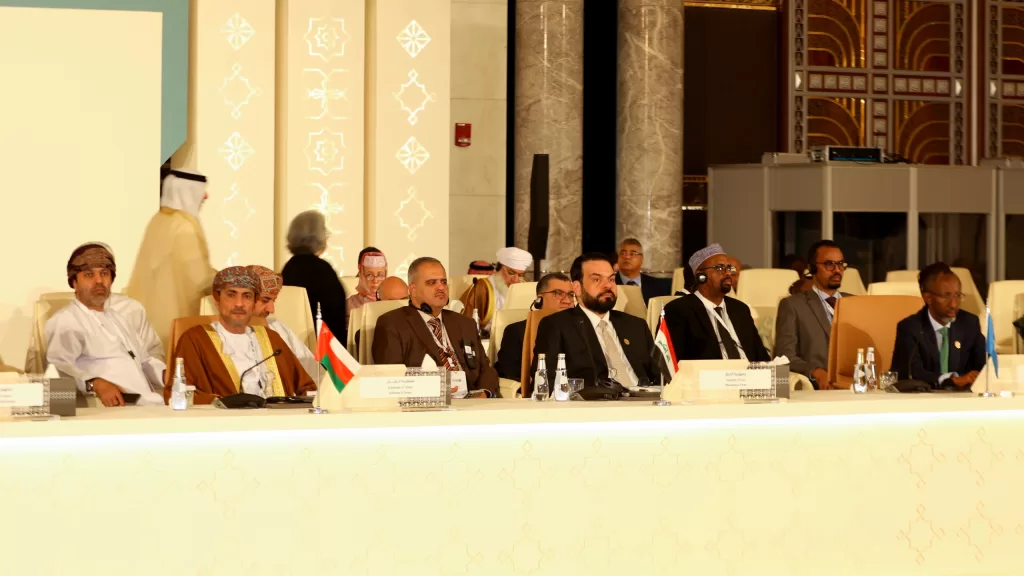
Conference of Ministers of Culture in the Islamic World Concludes with Jeddah Declaration on the Impact of Culture on Development

13 February 2025
Dr. Salim AlMalik: Culture remains the cornerstone and enabler of sustainable development.
The 13th Conference of Ministers of Culture in the Islamic World, organized by the Islamic World Educational, Scientific and Cultural Organization (ICESCO) and hosted by the Ministry of Culture of the Kingdom of Saudi Arabia in Jeddah on 12-13 February 2025, concluded its proceedings with the issuance of the Jeddah Declaration on the Impact of Culture on Social and Economic Development.
The Jeddah Declaration reaffirmed that culture is a fundamental pillar in building societies, strengthening national identity, and driving economic and social growth. It underscored culture’s central role in addressing contemporary issues and emphasized the need for greater awareness and recognition of cultural rights. The Declaration called for broad efforts to promote access to culture, including training programs, support for high-quality cultural production, and initiatives to enhance public understanding of cultural rights.
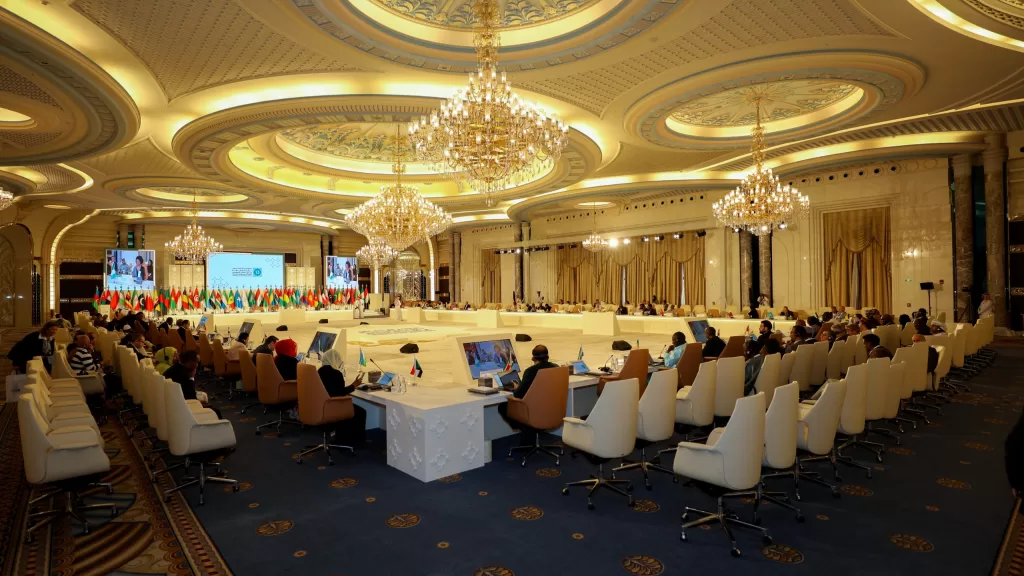
Moreover, the Declaration urged intensified efforts to protect the Islamic world’s cultural heritage, particularly in Palestine, given the ongoing attacks on its heritage by occupation forces. The Declaration stressed that safeguarding heritage is a global responsibility.
The Declaration emphasized the vital role of cultural institutions in addressing climate change, stressing the need to empower them to mitigate its effects, manage and protect cultural properties against environmental risks, and ensure their long-term sustainability.
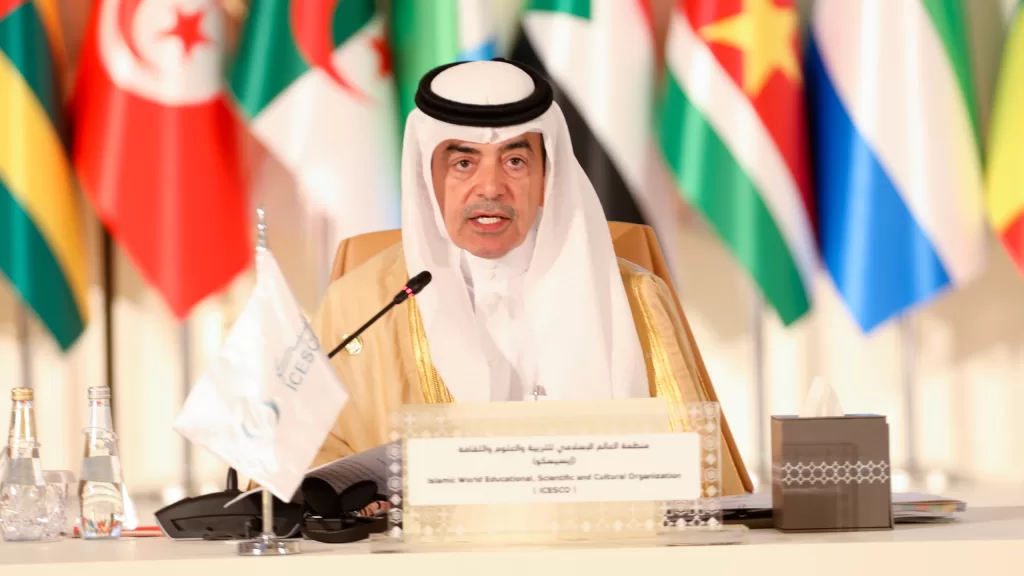
Regarding cultural policies, the Declaration reaffirmed the commitment of Member States to strengthening social cohesion through culture and advancing efforts to integrate culture into the United Nations Sustainable Development Goals. The Declaration concluded by endorsing Saudi Arabia’s bid to host MONDIACULT 2029 and commending its Initiative to Enhance the Restitution of Cultural Properties in the Islamic World.
In addition to the designation of Baghdad and Kazan as cultural capitals in the Islamic world for 2026, the final day of the Conference saw the adoption of key documents and initiatives presented by Saudi Arabia’s Ministry of Culture and ICESCO’s General Directorate. These included:
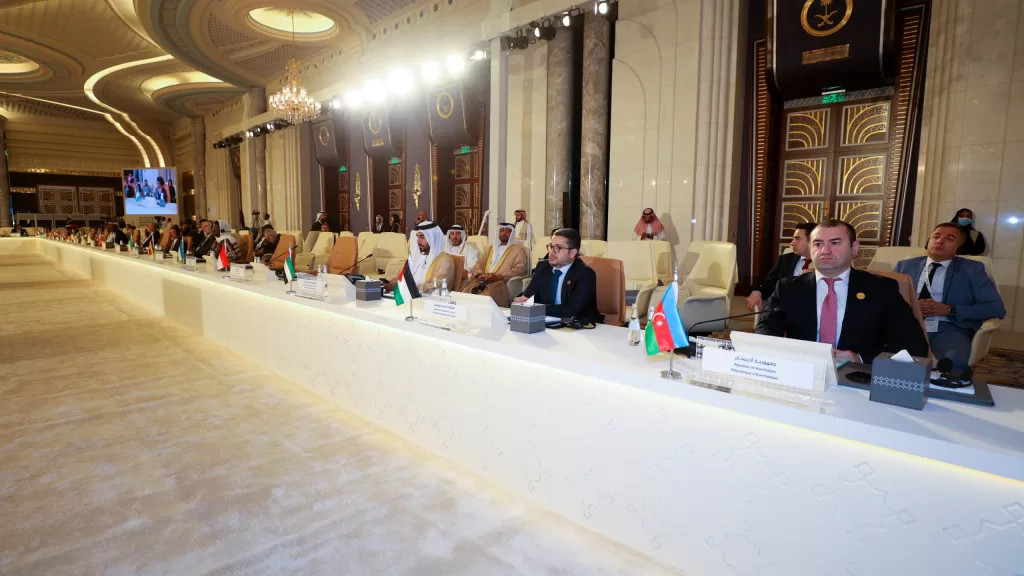
• ICESCO’s Report on Cultural Achievements
• The Report of the Islamic World Heritage Committee
• The Report of the 19th Meeting of the Consultative Council for Cultural Development
• ICESCO’s Programme on Cultural Rights and the Right to Culture in Islamic World Countries
• Saudi Arabia’s Initiative to Enhance the Restitution of Cultural Properties in the Islamic World
• The Report on Heritage Sites in Danger in the Islamic World
• The Report on the Digitization of Bilingual Dictionaries
• The Report on the Historical Illustrated Dictionary of Arabic Calligraphy
While chairing the closing session, Mr. Rakan bin Ibrahim Al-Touq, Assistant Minister of Culture of Saudi Arabia, delivered a speech on behalf of Prince Bader bin Abdullah bin Farhan Al Saud, Minister of Culture. Mr. Al-Touq thanked ICESCO for its valuable cooperation and successful organization of the Conference, which was marked by key decisions and initiatives highlighting the significant role of culture in development.
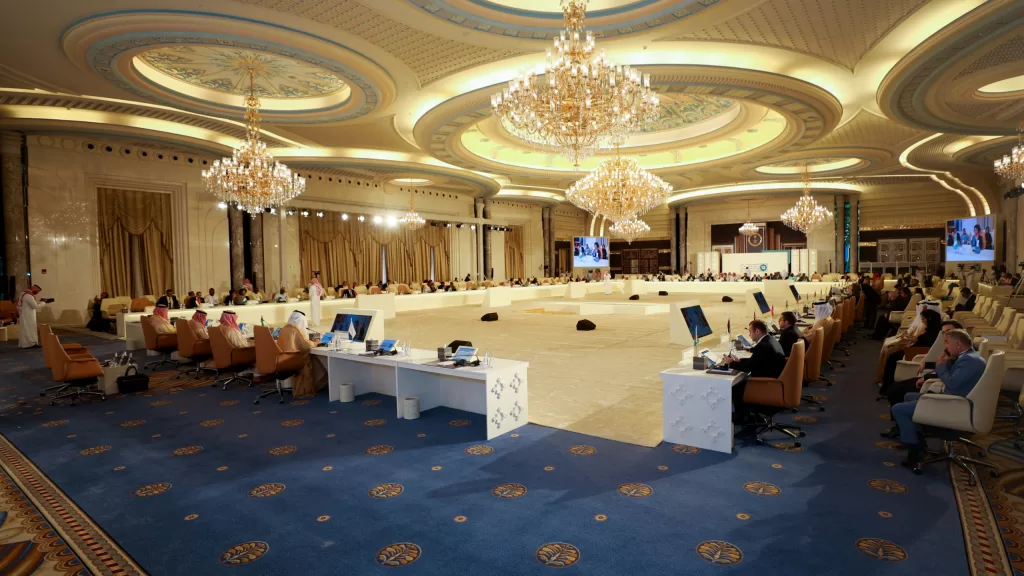
Dr. Salim M. AlMalik, Director-General of ICESCO, delivered a closing address in which he praised the Conference’s insightful discussions and contributions. Dr. AlMalik highlighted how these exchanges reflected the attendees’ strong commitment to partnership, cooperation, and consensus—values deeply rooted in the Islamic world’s civilizational heritage. This spirit, he noted, was evident in the Conference’s resolutions and outcomes, which are designed to shape a forward-looking future. Dr. AlMalik reaffirmed that culture remains the cornerstone and enabler of sustainable development.
In conclusion, the Ministers of Culture in the Islamic world extended their deepest gratitude to the Custodian of the Two Holy Mosques, King Salman bin Abdulaziz Al Saud, and His Royal Highness Prince Mohammed bin Salman bin Abdulaziz Al Saud, Crown Prince and Prime Minister, may Allah protect them, for Saudi Arabia’s generous hospitality and for hosting the Conference.
